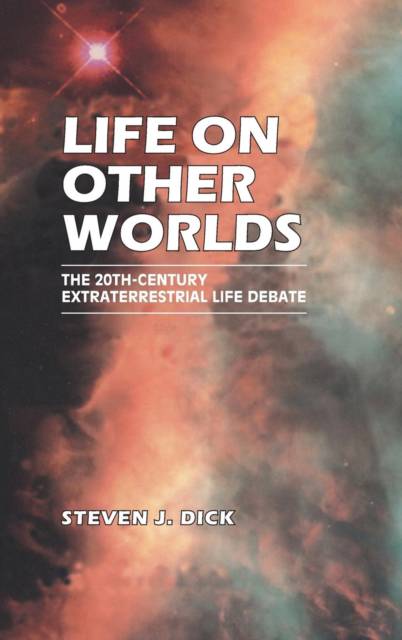
- Retrait gratuit dans votre magasin Club
- 7.000.000 titres dans notre catalogue
- Payer en toute sécurité
- Toujours un magasin près de chez vous
- Retrait gratuit dans votre magasin Club
- 7.000.0000 titres dans notre catalogue
- Payer en toute sécurité
- Toujours un magasin près de chez vous
Life on Other Worlds
The 20th-Century Extraterrestrial Life Debate
Steven J Dick
Livre relié | Anglais
142,95 €
+ 285 points
Format
Description
Are we alone in the Universe? From the furor over Percival Lowell's claim of canals on Mars at the beginning of the century to the more recent controversial rock from Mars and the sophisticated Search for Extraterrestrial Intelligence (SETI), the prospect of otherworldly life has often titillated and occasionally consumed science and the public. The search for planetary systems, the quest to explain UFOs, and inquiries into the origin of life have fueled an abundance of popular and scientific literature. They have also provided Hollywood with fodder for some of the most popular films of our time, including ET, Aliens, Independence Day, and Contact. Lucid and accessible, Life on Other Worlds chronicles the history of the twentieth-century extraterrestrial debate. Putting the latest findings and heated controversies into a broader historical context, Steven Dick documents how the concept of extraterrestrial intelligence is a world view of its own--a "biophysical cosmology" that seeks confirmation no less than physical views of the Universe. The debate rests at the very limits of science, and attempts at confirmation only illuminate the nature of science itself. Dick shows that appreciating the history of the debate enables a better understanding of the nature of science, and is central to any forward-looking view of religion and philosophy. For anyone interested in a look over the edge of scientific discovery, Life on Other Worlds provides the exciting tale behind the greatest debate in the twentieth century. Dr. Steven J. Dick is an astronomer and historian of science at the U.S. Naval Observatory. He is the author of Plurality of Worlds: The Origins of the Extraterrestrial Life Debate from Democritus to Kant (Cambridge, 1982) and Biological Universe (Cambridge, 1996).
Spécifications
Parties prenantes
- Auteur(s) :
- Editeur:
Contenu
- Nombre de pages :
- 304
- Langue:
- Anglais
Caractéristiques
- EAN:
- 9780521620123
- Date de parution :
- 28-09-98
- Format:
- Livre relié
- Format numérique:
- Genaaid
- Dimensions :
- 159 mm x 235 mm
- Poids :
- 562 g

Les avis
Nous publions uniquement les avis qui respectent les conditions requises. Consultez nos conditions pour les avis.






